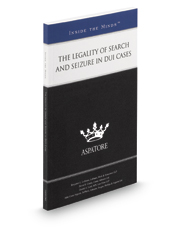The Legality of a Search
The Court is usually inclined to consider two questions
in any court case involving the plaintiff contesting the legality of a search.
First, the members must consider whether the citizen had an expectation of
privacy in whichever activity they were carrying out during the search.
Secondly, the judges need to determine whether the individual’s expectation was
reasonable. However, there is no standardized method for determining the
expectations and their degree of reasonability. Therefore, this decision has been
left to the shifting political and social views of law enforcement officers.
The use of many complex terms during the events surrounding a search has led to
a feeling of insecurity among the city’s occupants. Safety is instrumental in
any community as it fosters a sense of pride among the occupants, and results
in a reduction in the number of injuries, thus, leading to an improvement in
the well-being of the members. Burke,
Drake,
and Slobogin
reinforce the understanding of the legality of a search and seizure.
Drake reviews the merits and drawbacks
of the implementation of the new judicial federalism and describes the reasons
against reviving the new clauses introduced. In most cases, state laws take
precedence over federal laws meaning the determination of criminal intent is
always tricky. Drake suggests that the Courts should be motivated to interpret
the search and seizure clause to achieve a semblance of equality. According to
Drake (2016), their involvement would take care of the “mass of contradictions
and obscurities” surrounding this clause and overhaul the current system (329).
Therefore, judges and advocates can play a vital role in bringing about
unparalleled chances for the formulation of policies that protect the citizens.
But, the members of the Court should ensure they have the full facts and claims
before deciding to avoid over-reliance on a single judgment issued years ago.
Secondly, Slobogin discusses the role of the
Fourth Amendment in protecting citizens against unlawful search and seizures.
According to Slobogin, the expectation of privacy is “circular and, hence,
subjective and unpredictable” (148). Therefore, the Fourth Amendment might
cease to matter as technological advances continue to make it easier for law
officers to view one’s activities. Furthermore, a conservative inference is
unreflective and damaging to societal norms which further incites fear into the
public. Even simple concepts involving relativity can be manipulated which
makes it even more difficult to distinguish the privacy guarantees from other
flawed policies. Although all privacy standards have their flaws, their
potential for alienability can help maximize the flexibility of the Fourth
Amendment in dealing with the issues posed by law enforcement practices.
Additionally, Burke analyses the
reasonableness of the doctrine that specifies the consent one is expected to
give before a search. Law enforcement officers may at times use coercive
techniques that override the citizen’s voluntariness. This doctrine fails to
consider the general tendency of the public to comply with law enforcement as
they lack the courage to say no. Consequently, the power of this perceived
authority contributes to a culture where commands will likely be shrouded in
the language of a request. Thus, there is the need to begin an inquiry into the
fairness of this doctrine which has been lost in all the commotion about
subjectivity. Such an investigation would result in a clear distinction between
an officer’s reasonableness and a citizen’s voluntariness (Burke, 2015). If law
enforcement officers had to articulate their reasons for requesting the search
before gaining consent, then the resulting searches are more likely to be fair.
To combat this issue, the members of the
City Council should develop a remedy for invasion of privacy through unlawful
searched by enforcing police liability. By doing so, the members would be
sending a message of reassurance to the city’s occupants and a warning to law
enforcement officers. In the event of such a remedy, officers are less likely
to use coercive means to earn consent or to bend the situation at hand to suit
their point of view. Also, the officers would then realize that no amount of
evidence should suffice instead of a warrant or consent as they have no greater
rights than citizens. The officers would then be liable for any injuries during
the unreasonable search, and the evidence they gathered would be inadmissible
in court. Therefore, by making unjustified searches fruitless, the members of
the City Council can uphold the citizens’ right to be free from these searches.
In summary, the decision to determine
the reasonability of a search involves a complex and rigorous process. Law
enforcement officers may base their conclusions on their intent to close a
case, thus, forego the privacy expectations of the citizens. Therefore, the
members of the Court should decide on the reasonability and, hence, the legality
of a search. But, all standards concerning privacy have their flaws which
leaves a lot of room for manipulation of these doctrines. Moreover, the public
is inclined towards obeying the officers’ requests even when they are made
without enough due case. As a result, the city officials should resort to
holding officers liable for any unreasonable searches to create a sense of
safety in the citizens.



0 Comments